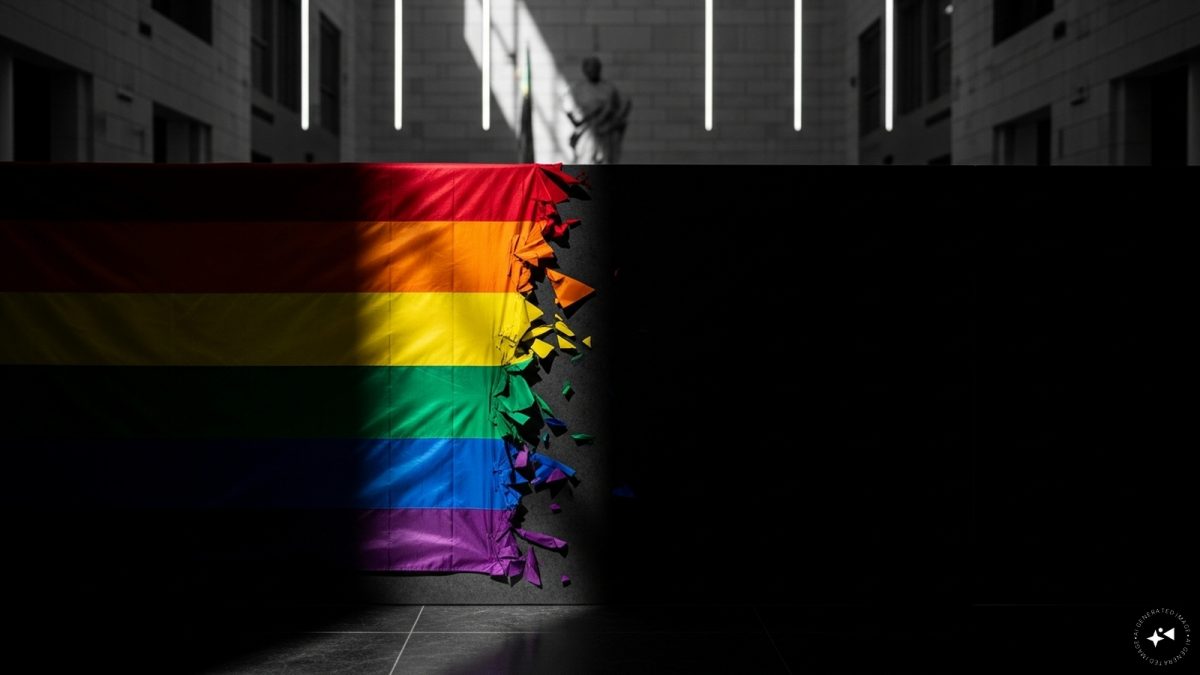Kazakhstan’s lower house of parliament on Wednesday passed a bill prohibiting what authorities describe as “propaganda” of LGBTQ+ relationships, a move that has drawn strong criticism from rights groups, who say it threatens the safety and freedoms of the country’s LGBTQ+ community.
In an online statement, the lower house said the legislation seeks to “protect children from content harmful to their health and development.” It specifically bans the “dissemination of information containing propaganda of pedophilia and/or non-traditional sexual orientation” through public channels, media, telecommunications networks, and online platforms.
Deputy Culture Minister Evgeny Kochetov told local media that the “public endorsement of these actions” would be treated as a form of “propaganda” under the new law.
“Calls to the effect that being an LGBT person is better than being a heterosexual person will be banned,” Kochetov was quoted by the Orda.Kz outlet as saying. Any LGBTQ+ related content — such as books or films — that doesn’t contain “propaganda” will be marked as 18+, he said.
Those violating the law will face steep fines or jail time.
The bill now needs to be approved by the upper house of parliament — the Senate — and then signed by the country’s president, Kassym-Jomart Tokayev.
Quick Reads
View AllTokayev, who this week was in Moscow meeting with Russian President Vladimir Putin, have repeatedly insisted recently that it was necessary to uphold “traditional values” in the Central Asian republic of over 19 million.
“Traditional family values” have also become a cornerstone of Putin’s quarter-century rule in Russia, where a flurry of laws adopted in recent years severely curtailed LGBTQ+ rights.
Rights groups in Kazakhstan and globally have condemned the bill. Kazakhstani LGBTQ+ group, Queer.KZ, has urged the Senate and Tokayev to reject the measure, saying in an online statement: “Our fight continues.”
Human Rights Watch, in a joint statement with six other international rights groups, warned the day before the vote in Mazhilis lower house that adopting the bill “would violate fundamental human rights and increase the vulnerability of lesbian, gay, bisexual, trans, intersex, and other queer people (LGBTIQ+) in Kazakhstan.”
Kazakhstan decriminalized homosexuality in 1998 and allowed transgender people to change their gender marker in the official documents in 2003, but same-sex marriages are not allowed in the largely conservative, predominantly Muslim nation. Human Rights Watch points out that there are no laws in place against discrimination on the grounds of gender identity or sexual orientation.
The LGBTQ+ community in Kazakhstan “are targets of assaults, threats, blackmail, and extortion by law enforcement officers and nonstate actors, as well as discrimination,” the joint statement said.
)